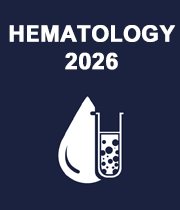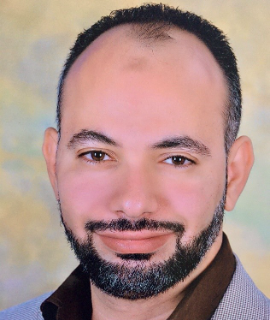Title : COVID-19 related unusual thrombotic events in young adult non-critically Ill patients
Abstract:
COVID-19-related symptoms, risk factors for thrombosis, coagulation, and inflammatory parameters were compared in 145 previously healthy non-critically ill young adults, with 29 patients reporting uncommon thrombotic-events (UTEs) and 116 not experiencing thrombotic-events. In UTEs patients, inflammatory-indices, coagulation, and pro-thrombotic-platelet-phenotype (PTPP) were considerably higher than in those without. UTEs patients were divided into non-TG and TG-subcohorts based on the presence of thrombophilic genes (TG), coagulation, and inflammatory markers. Among the 38 UTEs were splanchnic vein thrombosis (n=11), stroke (n=6), cerebral vein thrombosis (n=5), thrombotic microangiopathy (n=4), limb-ischemia and IVC thrombosis (three each), STEMI (n=2), SVC thrombosis (n=2), upper limb DVT, and retinal vein thrombosis. We discovered a 55% prevalence of TG, primarily due to heterozygous FII-G20210A, JAK2-V617F, protein-S, and antithrombin-III deficiency, as well as a significant (76.9%) incidence of venous-UTEs, multiple-vessel thrombosis, and recurrence rate among TG vs non-TG patients. The presence of JAK2-V617F, and FII-G20210A mutations was linked with SVT. Thrombosis in the non-TG subcohort was associated with more hemorrhagic problems, thrombosis progression and a significantly higher level of inflammatory markers, PTPP, MPV, vWF, and FVIII, which remained high for up to six months, as well as elevated D-dimer. Acquired and inherited thrombophilia with endotheliopathy appeared to be a relevant mechanism to explain the UTEs occurrence that is not correlated to COVID-19 severity.
Audience Takeaway:
Our study has a wide range of clinical implications.
- First, physicians should be aware that UTEs can develop 5 to 30 days after COVID-19 infection in young adult noncritical patients.
- Second, depending on the persistence of risk factors and thrombosis sites, therapy time should be customised for each patient. Although we have 6 months of follow-up data, the clinical importance of persistent elevations of D-dimer, vWF antigen and thrombophic genes on thrombosis recurrence is still a topic of controversy, thus close monitoring and more research are recommended for these individuals.
- Third, D-dimer with vWF level and activity tests are widely available and can be used to screen patients for a high risk of thrombosis linked to COVID-19.
- This study speculated the effect of COVID-19 in systemic coagulation activation and whether or not the undiagnosed inherited and acquired thrombophilia alter coagulation activation and the course of non-critically COVID-19 infection.
- Our findings of the possibility of a persistent high elevation of D -dimer, vWF antigen and FVIII and pro-thrombotic platelet phenotype for more than 6 months after infection despite lacking COVID-19 infection severity should influence our behavior in COVID-19 disease management as well as the thromboprophylaxis.
- The identification of these genetic defects should also modify the duration of the anticoagulant therapy and secondary thromboprophylaxis.
- Our findings pave the way for more investigation into COVID-19's potential function in the activation of thrombophilic genes.



